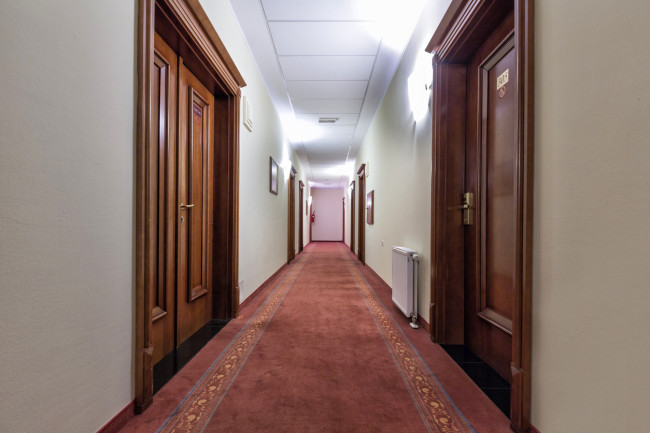A new ruling gives condos another tactic for kicking out wayward residents
While condos come with many perks compared to co-ops—higher values, more flexibility for sales and sublets, less interference from a board—one major downside is there is no easy method for kicking out badly behaved apartment owners. (Because co-op shareholders are technically leaseholders, evicting them by traditional means in housing court is more straightforward.) But thanks to a recent ruling, frustrated condo boards may have one new option at their disposal.
Earlier this month, Habitat Magazine reports, the state's highest court ruled in favor of the Heywood, a Chelsea condominium that was moving to evict a shareholder who had stopped paying his common charges back in 2007. While calling this type of eviction "rare," Justice Peter Tom also wrote, "unlike co-op boards, which are well equipped with legal remedies to address the issue of chronic misconduct by tenant-shareholders, condo boards are far less empowered to deal with difficult condominium owners."
The way this process works is that under certain language set forth in the Condominium Act as well as the Heywood's bylaws, the court was able to appoint a receiver (a term for a court-appointed attorney) to collect the owner's overdue common charges, in the form of a $6,500/month rent bill. Ultimately, it was the unit owner's failure to pay this 'rent' that led to his ejection from the building.
"Essentially, the remedy for the receiver was to go into court and say, 'Judge, you appointed me to collect, and this person was supposed to pay common charges in the form of rent, and didn't comply. Please issue a remedy,'" explains attorney Barry Margolis of Abrams Garfinkel Margolis Bergson. "And one of the remedies is ejection."
"The abbreviated road map [for other condo boards] is: File the common charge lien, move to foreclose, seek a receiver to collect the rent, and if they don't pay the rent, eject," an attorney for the Hewyood said of the case.
However, boards in search of solutions should keep in mind that this is not exactly a one-size-fits-all solution. "The circumstances here were unusual," explains co-op and condo attorney Steve Wagner (FYI, a Brick sponsor). While most condo buildings have language in the bylaws that allows them to ask the court to appoint a receiver and seek to collect rent from the resident, this approach is financially risky.
Going with a receiver can be a costly process, and Margolis notes that to hire one will generally cost around five percent of the money you're seeking to collect. "If you're talking about an insiginficant amount of money, this is not the strategy to pursue," he says. In this particular case, with over $600,000 owed to the building, the expense was easily justified by the amount of money the building stood to recoup. Additionally, even if the receiver is ultimately unable to recover money from the unit owner, the condo will be responsible for any expenses incurred in the process, which could end up costing the building even more money.
Another consideration is that your board may end up competing with a bank that's foreclosing on the property if the owner has also been failing to pay the mortgage. And if the bank forecloses first, it's possible that the condo building won't end up recovering the costs of the case. "Clearly, if there is a lender that has a lien that is ahead of the condo, this could be counterproductive," says Margolis. "Every case is different. Ultimately, once the condo completes its foreclosure [which is a separate foreclosure from the bank's], then the owner's equity will come to a head at the foreclosure. And you'll have to look at the rules of the foreclosure for who gets what money."
"There are issues that should be carefully considered before you just go forward with this [type of proceeding]," says Wagner. "But this does put another tool in the toolbox for condominiums."
Adds Margolis: "I wouldn't call this a sea change [in the law], but I would say this case highlighted a strategy that could be used, and if successful, could result in the ejectment of a unit owner from a condo."
You Might Also Like



























